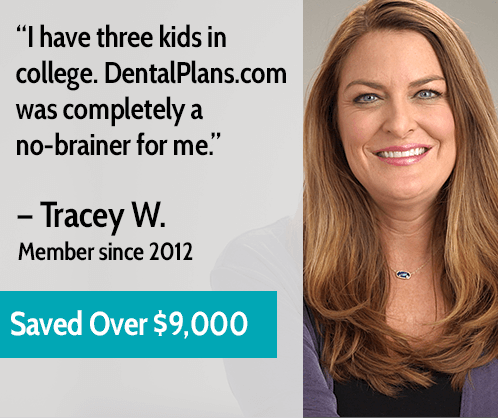Can I Change My Plan During Open Enrollment in Sarasota Florida?
“According to recent statistics, the average American changes their health insurance plan every three years. So, if you’re considering changing your plan during open enrollment in Sarasota, Florida, you’re not alone. But before you dive into the world of health insurance options, let’s explore the process, requirements, and benefits of changing your plan in Sarasota, Florida.”
Understanding Open Enrollment in Sarasota, Florida

Do I Need to Change My Health Insurance Plan During Open Enrollment?
During open enrollment, you have the opportunity to evaluate your current health insurance plan and decide whether it still meets your needs. It’s essential to consider factors such as changes in your healthcare needs, budget, and coverage options. If you find that your current plan is no longer suitable, you can explore other options available to you.
What Are the Dates for Open Enrollment in Sarasota, Florida?
Open enrollment in the United States typically occurs between November 1st and December 15th. However, the dates may vary from state to state. In Florida, the open enrollment period for Health Insurance Marketplace plans usually follows the national timeline. It’s crucial to mark these dates on your calendar and take advantage of the window of opportunity to make changes to your plan.
How to Change Your Health Insurance Plan During Open Enrollment

Step 1: Evaluate Your Current Plan
The first step in changing your health insurance plan during open enrollment is to evaluate your current coverage. Consider factors such as your monthly premiums, deductibles, co-pays, and out-of-pocket maximums. Assess whether your plan adequately covers the services and medications you need and whether there have been any changes in your healthcare needs over the past year.
Step 2: Explore Available Options
Next, it’s time to explore the available options for health insurance plans during open enrollment. This is where you can weigh the pros and cons of different plans, compare premiums, coverage networks, and benefits. It’s important to understand the types of plans available to you, such as Health Maintenance Organization (HMO) plans, Preferred Provider Organization (PPO) plans, and Exclusive Provider Organization (EPO) plans.
Step 3: Enroll in a New Plan
Once you’ve evaluated your current plan and explored available options, it’s time to make your decision and enroll in a new plan. You can do this through the Health Insurance Marketplace by visiting their website or calling their helpline. It’s crucial to complete the enrollment process before the deadline to ensure uninterrupted coverage.
Considerations When Changing Your Health Insurance Plan
Get a hussle-free consultation
Network Coverage
When changing your health insurance plan, one essential consideration is the network coverage. Make sure that the new plan you choose includes your preferred doctors, hospitals, and healthcare providers. You don’t want to be surprised by unexpected out-of-network costs or limited choices when it comes to accessing healthcare services.
Prescription Coverage
Another important factor to consider is prescription drug coverage. If you regularly take medications, ensure that the new plan covers your prescriptions and that there are no restrictions or high out-of-pocket costs associated with them. You can review each plan’s formulary to see if your medications are covered and at what cost.
Out-of-Pocket Costs
It’s crucial to understand the out-of-pocket costs associated with your new health insurance plan. These costs include deductibles, co-pays, and coinsurance. Consider your budget and healthcare needs to determine which plan offers the most favorable cost-sharing structure for you. It’s also worth noting that some plans may offer supplemental benefits, such as dental or vision coverage.
The Benefits of Changing Your Health Insurance Plan

Access to New Providers and Services
Changing your health insurance plan during open enrollment can open doors to new providers and services. If you’ve been unsatisfied with your current network or have specific healthcare needs that aren’t adequately met, switching plans can give you access to a broader network of healthcare professionals and specialized services.
Potential Cost Savings
By exploring different health insurance options during open enrollment, you may be able to find a plan that offers better cost-sharing or lower premiums. This can result in significant cost savings for you and your family, allowing you to allocate those funds for other essential needs or savings.
Improved Coverage for Changing Healthcare Needs
As life circumstances change, so do healthcare needs. Whether you’re planning to start a family, need specialized treatments, or have experienced changes in prescription medications, changing your health insurance plan can ensure that you have coverage that meets these evolving needs. It’s essential to carefully evaluate and select a plan that provides the necessary coverage for your specific situation.
Common Mistakes to Avoid When Changing Your Health Insurance Plan
Not Reviewing Plan Changes
When changing your health insurance plan during open enrollment, it’s crucial to review any changes to the plan. Insurance providers may make modifications to coverage networks, formularies, or cost-sharing structures. Failing to review these changes could result in unexpected costs or limitations in accessing healthcare services.
Not Researching Provider Networks
Don’t overlook the importance of researching provider networks when changing your health insurance plan. Ensure that the new plan you choose includes your preferred healthcare providers and hospitals. This can save you from having to switch doctors or being surprised by out-of-network costs.
Not Considering Future Healthcare Needs
While it’s important to consider your current healthcare needs when changing your health insurance plan, it’s equally crucial to think about future needs. Are you planning to start a family, have a surgery scheduled, or anticipate any other healthcare needs? Take these into account when selecting a new plan to ensure you have adequate coverage.
Conclusion


During open enrollment, you have the opportunity to evaluate your current health insurance plan and decide whether it still meets your needs. It’s essential to consider factors such as changes in your healthcare needs, budget, and coverage options. If you find that your current plan is no longer suitable, you can explore other options available to you.
What Are the Dates for Open Enrollment in Sarasota, Florida?
Open enrollment in the United States typically occurs between November 1st and December 15th. However, the dates may vary from state to state. In Florida, the open enrollment period for Health Insurance Marketplace plans usually follows the national timeline. It’s crucial to mark these dates on your calendar and take advantage of the window of opportunity to make changes to your plan.
How to Change Your Health Insurance Plan During Open Enrollment

Step 1: Evaluate Your Current Plan
The first step in changing your health insurance plan during open enrollment is to evaluate your current coverage. Consider factors such as your monthly premiums, deductibles, co-pays, and out-of-pocket maximums. Assess whether your plan adequately covers the services and medications you need and whether there have been any changes in your healthcare needs over the past year.
Step 2: Explore Available Options
Next, it’s time to explore the available options for health insurance plans during open enrollment. This is where you can weigh the pros and cons of different plans, compare premiums, coverage networks, and benefits. It’s important to understand the types of plans available to you, such as Health Maintenance Organization (HMO) plans, Preferred Provider Organization (PPO) plans, and Exclusive Provider Organization (EPO) plans.
Step 3: Enroll in a New Plan
Once you’ve evaluated your current plan and explored available options, it’s time to make your decision and enroll in a new plan. You can do this through the Health Insurance Marketplace by visiting their website or calling their helpline. It’s crucial to complete the enrollment process before the deadline to ensure uninterrupted coverage.
Considerations When Changing Your Health Insurance Plan
Get a hussle-free consultation
Network Coverage
When changing your health insurance plan, one essential consideration is the network coverage. Make sure that the new plan you choose includes your preferred doctors, hospitals, and healthcare providers. You don’t want to be surprised by unexpected out-of-network costs or limited choices when it comes to accessing healthcare services.
Prescription Coverage
Another important factor to consider is prescription drug coverage. If you regularly take medications, ensure that the new plan covers your prescriptions and that there are no restrictions or high out-of-pocket costs associated with them. You can review each plan’s formulary to see if your medications are covered and at what cost.
Out-of-Pocket Costs
It’s crucial to understand the out-of-pocket costs associated with your new health insurance plan. These costs include deductibles, co-pays, and coinsurance. Consider your budget and healthcare needs to determine which plan offers the most favorable cost-sharing structure for you. It’s also worth noting that some plans may offer supplemental benefits, such as dental or vision coverage.
The Benefits of Changing Your Health Insurance Plan

Access to New Providers and Services
Changing your health insurance plan during open enrollment can open doors to new providers and services. If you’ve been unsatisfied with your current network or have specific healthcare needs that aren’t adequately met, switching plans can give you access to a broader network of healthcare professionals and specialized services.
Potential Cost Savings
By exploring different health insurance options during open enrollment, you may be able to find a plan that offers better cost-sharing or lower premiums. This can result in significant cost savings for you and your family, allowing you to allocate those funds for other essential needs or savings.
Improved Coverage for Changing Healthcare Needs
As life circumstances change, so do healthcare needs. Whether you’re planning to start a family, need specialized treatments, or have experienced changes in prescription medications, changing your health insurance plan can ensure that you have coverage that meets these evolving needs. It’s essential to carefully evaluate and select a plan that provides the necessary coverage for your specific situation.
Common Mistakes to Avoid When Changing Your Health Insurance Plan
Not Reviewing Plan Changes
When changing your health insurance plan during open enrollment, it’s crucial to review any changes to the plan. Insurance providers may make modifications to coverage networks, formularies, or cost-sharing structures. Failing to review these changes could result in unexpected costs or limitations in accessing healthcare services.
Not Researching Provider Networks
Don’t overlook the importance of researching provider networks when changing your health insurance plan. Ensure that the new plan you choose includes your preferred healthcare providers and hospitals. This can save you from having to switch doctors or being surprised by out-of-network costs.
Not Considering Future Healthcare Needs
While it’s important to consider your current healthcare needs when changing your health insurance plan, it’s equally crucial to think about future needs. Are you planning to start a family, have a surgery scheduled, or anticipate any other healthcare needs? Take these into account when selecting a new plan to ensure you have adequate coverage.
Conclusion


Step 1: Evaluate Your Current Plan
The first step in changing your health insurance plan during open enrollment is to evaluate your current coverage. Consider factors such as your monthly premiums, deductibles, co-pays, and out-of-pocket maximums. Assess whether your plan adequately covers the services and medications you need and whether there have been any changes in your healthcare needs over the past year.
Step 2: Explore Available Options
Next, it’s time to explore the available options for health insurance plans during open enrollment. This is where you can weigh the pros and cons of different plans, compare premiums, coverage networks, and benefits. It’s important to understand the types of plans available to you, such as Health Maintenance Organization (HMO) plans, Preferred Provider Organization (PPO) plans, and Exclusive Provider Organization (EPO) plans.
Step 3: Enroll in a New Plan
Once you’ve evaluated your current plan and explored available options, it’s time to make your decision and enroll in a new plan. You can do this through the Health Insurance Marketplace by visiting their website or calling their helpline. It’s crucial to complete the enrollment process before the deadline to ensure uninterrupted coverage.
Considerations When Changing Your Health Insurance Plan
Get a hussle-free consultation
Network Coverage
When changing your health insurance plan, one essential consideration is the network coverage. Make sure that the new plan you choose includes your preferred doctors, hospitals, and healthcare providers. You don’t want to be surprised by unexpected out-of-network costs or limited choices when it comes to accessing healthcare services.
Prescription Coverage
Another important factor to consider is prescription drug coverage. If you regularly take medications, ensure that the new plan covers your prescriptions and that there are no restrictions or high out-of-pocket costs associated with them. You can review each plan’s formulary to see if your medications are covered and at what cost.
Out-of-Pocket Costs
It’s crucial to understand the out-of-pocket costs associated with your new health insurance plan. These costs include deductibles, co-pays, and coinsurance. Consider your budget and healthcare needs to determine which plan offers the most favorable cost-sharing structure for you. It’s also worth noting that some plans may offer supplemental benefits, such as dental or vision coverage.
The Benefits of Changing Your Health Insurance Plan

Access to New Providers and Services
Changing your health insurance plan during open enrollment can open doors to new providers and services. If you’ve been unsatisfied with your current network or have specific healthcare needs that aren’t adequately met, switching plans can give you access to a broader network of healthcare professionals and specialized services.
Potential Cost Savings
By exploring different health insurance options during open enrollment, you may be able to find a plan that offers better cost-sharing or lower premiums. This can result in significant cost savings for you and your family, allowing you to allocate those funds for other essential needs or savings.
Improved Coverage for Changing Healthcare Needs
As life circumstances change, so do healthcare needs. Whether you’re planning to start a family, need specialized treatments, or have experienced changes in prescription medications, changing your health insurance plan can ensure that you have coverage that meets these evolving needs. It’s essential to carefully evaluate and select a plan that provides the necessary coverage for your specific situation.
Common Mistakes to Avoid When Changing Your Health Insurance Plan
Not Reviewing Plan Changes
When changing your health insurance plan during open enrollment, it’s crucial to review any changes to the plan. Insurance providers may make modifications to coverage networks, formularies, or cost-sharing structures. Failing to review these changes could result in unexpected costs or limitations in accessing healthcare services.
Not Researching Provider Networks
Don’t overlook the importance of researching provider networks when changing your health insurance plan. Ensure that the new plan you choose includes your preferred healthcare providers and hospitals. This can save you from having to switch doctors or being surprised by out-of-network costs.
Not Considering Future Healthcare Needs
While it’s important to consider your current healthcare needs when changing your health insurance plan, it’s equally crucial to think about future needs. Are you planning to start a family, have a surgery scheduled, or anticipate any other healthcare needs? Take these into account when selecting a new plan to ensure you have adequate coverage.
Conclusion

Next, it’s time to explore the available options for health insurance plans during open enrollment. This is where you can weigh the pros and cons of different plans, compare premiums, coverage networks, and benefits. It’s important to understand the types of plans available to you, such as Health Maintenance Organization (HMO) plans, Preferred Provider Organization (PPO) plans, and Exclusive Provider Organization (EPO) plans.
Step 3: Enroll in a New Plan
Once you’ve evaluated your current plan and explored available options, it’s time to make your decision and enroll in a new plan. You can do this through the Health Insurance Marketplace by visiting their website or calling their helpline. It’s crucial to complete the enrollment process before the deadline to ensure uninterrupted coverage.
Considerations When Changing Your Health Insurance Plan
Get a hussle-free consultation
Network Coverage
When changing your health insurance plan, one essential consideration is the network coverage. Make sure that the new plan you choose includes your preferred doctors, hospitals, and healthcare providers. You don’t want to be surprised by unexpected out-of-network costs or limited choices when it comes to accessing healthcare services.
Prescription Coverage
Another important factor to consider is prescription drug coverage. If you regularly take medications, ensure that the new plan covers your prescriptions and that there are no restrictions or high out-of-pocket costs associated with them. You can review each plan’s formulary to see if your medications are covered and at what cost.
Out-of-Pocket Costs
It’s crucial to understand the out-of-pocket costs associated with your new health insurance plan. These costs include deductibles, co-pays, and coinsurance. Consider your budget and healthcare needs to determine which plan offers the most favorable cost-sharing structure for you. It’s also worth noting that some plans may offer supplemental benefits, such as dental or vision coverage.
The Benefits of Changing Your Health Insurance Plan

Access to New Providers and Services
Changing your health insurance plan during open enrollment can open doors to new providers and services. If you’ve been unsatisfied with your current network or have specific healthcare needs that aren’t adequately met, switching plans can give you access to a broader network of healthcare professionals and specialized services.
Potential Cost Savings
By exploring different health insurance options during open enrollment, you may be able to find a plan that offers better cost-sharing or lower premiums. This can result in significant cost savings for you and your family, allowing you to allocate those funds for other essential needs or savings.
Improved Coverage for Changing Healthcare Needs
As life circumstances change, so do healthcare needs. Whether you’re planning to start a family, need specialized treatments, or have experienced changes in prescription medications, changing your health insurance plan can ensure that you have coverage that meets these evolving needs. It’s essential to carefully evaluate and select a plan that provides the necessary coverage for your specific situation.
Common Mistakes to Avoid When Changing Your Health Insurance Plan
Not Reviewing Plan Changes
When changing your health insurance plan during open enrollment, it’s crucial to review any changes to the plan. Insurance providers may make modifications to coverage networks, formularies, or cost-sharing structures. Failing to review these changes could result in unexpected costs or limitations in accessing healthcare services.
Not Researching Provider Networks
Don’t overlook the importance of researching provider networks when changing your health insurance plan. Ensure that the new plan you choose includes your preferred healthcare providers and hospitals. This can save you from having to switch doctors or being surprised by out-of-network costs.
Not Considering Future Healthcare Needs
While it’s important to consider your current healthcare needs when changing your health insurance plan, it’s equally crucial to think about future needs. Are you planning to start a family, have a surgery scheduled, or anticipate any other healthcare needs? Take these into account when selecting a new plan to ensure you have adequate coverage.
Conclusion

Get a hussle-free consultation
Network Coverage
When changing your health insurance plan, one essential consideration is the network coverage. Make sure that the new plan you choose includes your preferred doctors, hospitals, and healthcare providers. You don’t want to be surprised by unexpected out-of-network costs or limited choices when it comes to accessing healthcare services.
Prescription Coverage
Another important factor to consider is prescription drug coverage. If you regularly take medications, ensure that the new plan covers your prescriptions and that there are no restrictions or high out-of-pocket costs associated with them. You can review each plan’s formulary to see if your medications are covered and at what cost.
Out-of-Pocket Costs
It’s crucial to understand the out-of-pocket costs associated with your new health insurance plan. These costs include deductibles, co-pays, and coinsurance. Consider your budget and healthcare needs to determine which plan offers the most favorable cost-sharing structure for you. It’s also worth noting that some plans may offer supplemental benefits, such as dental or vision coverage.
The Benefits of Changing Your Health Insurance Plan

Access to New Providers and Services
Changing your health insurance plan during open enrollment can open doors to new providers and services. If you’ve been unsatisfied with your current network or have specific healthcare needs that aren’t adequately met, switching plans can give you access to a broader network of healthcare professionals and specialized services.
Potential Cost Savings
By exploring different health insurance options during open enrollment, you may be able to find a plan that offers better cost-sharing or lower premiums. This can result in significant cost savings for you and your family, allowing you to allocate those funds for other essential needs or savings.
Improved Coverage for Changing Healthcare Needs
As life circumstances change, so do healthcare needs. Whether you’re planning to start a family, need specialized treatments, or have experienced changes in prescription medications, changing your health insurance plan can ensure that you have coverage that meets these evolving needs. It’s essential to carefully evaluate and select a plan that provides the necessary coverage for your specific situation.
Common Mistakes to Avoid When Changing Your Health Insurance Plan
Not Reviewing Plan Changes
When changing your health insurance plan during open enrollment, it’s crucial to review any changes to the plan. Insurance providers may make modifications to coverage networks, formularies, or cost-sharing structures. Failing to review these changes could result in unexpected costs or limitations in accessing healthcare services.
Not Researching Provider Networks
Don’t overlook the importance of researching provider networks when changing your health insurance plan. Ensure that the new plan you choose includes your preferred healthcare providers and hospitals. This can save you from having to switch doctors or being surprised by out-of-network costs.
Not Considering Future Healthcare Needs
While it’s important to consider your current healthcare needs when changing your health insurance plan, it’s equally crucial to think about future needs. Are you planning to start a family, have a surgery scheduled, or anticipate any other healthcare needs? Take these into account when selecting a new plan to ensure you have adequate coverage.
Conclusion

Another important factor to consider is prescription drug coverage. If you regularly take medications, ensure that the new plan covers your prescriptions and that there are no restrictions or high out-of-pocket costs associated with them. You can review each plan’s formulary to see if your medications are covered and at what cost.
Out-of-Pocket Costs
It’s crucial to understand the out-of-pocket costs associated with your new health insurance plan. These costs include deductibles, co-pays, and coinsurance. Consider your budget and healthcare needs to determine which plan offers the most favorable cost-sharing structure for you. It’s also worth noting that some plans may offer supplemental benefits, such as dental or vision coverage.
The Benefits of Changing Your Health Insurance Plan

Access to New Providers and Services
Changing your health insurance plan during open enrollment can open doors to new providers and services. If you’ve been unsatisfied with your current network or have specific healthcare needs that aren’t adequately met, switching plans can give you access to a broader network of healthcare professionals and specialized services.
Potential Cost Savings
By exploring different health insurance options during open enrollment, you may be able to find a plan that offers better cost-sharing or lower premiums. This can result in significant cost savings for you and your family, allowing you to allocate those funds for other essential needs or savings.
Improved Coverage for Changing Healthcare Needs
As life circumstances change, so do healthcare needs. Whether you’re planning to start a family, need specialized treatments, or have experienced changes in prescription medications, changing your health insurance plan can ensure that you have coverage that meets these evolving needs. It’s essential to carefully evaluate and select a plan that provides the necessary coverage for your specific situation.
Common Mistakes to Avoid When Changing Your Health Insurance Plan
Not Reviewing Plan Changes
When changing your health insurance plan during open enrollment, it’s crucial to review any changes to the plan. Insurance providers may make modifications to coverage networks, formularies, or cost-sharing structures. Failing to review these changes could result in unexpected costs or limitations in accessing healthcare services.
Not Researching Provider Networks
Don’t overlook the importance of researching provider networks when changing your health insurance plan. Ensure that the new plan you choose includes your preferred healthcare providers and hospitals. This can save you from having to switch doctors or being surprised by out-of-network costs.
Not Considering Future Healthcare Needs
While it’s important to consider your current healthcare needs when changing your health insurance plan, it’s equally crucial to think about future needs. Are you planning to start a family, have a surgery scheduled, or anticipate any other healthcare needs? Take these into account when selecting a new plan to ensure you have adequate coverage.
Conclusion


Access to New Providers and Services
Changing your health insurance plan during open enrollment can open doors to new providers and services. If you’ve been unsatisfied with your current network or have specific healthcare needs that aren’t adequately met, switching plans can give you access to a broader network of healthcare professionals and specialized services.
Potential Cost Savings
By exploring different health insurance options during open enrollment, you may be able to find a plan that offers better cost-sharing or lower premiums. This can result in significant cost savings for you and your family, allowing you to allocate those funds for other essential needs or savings.
Improved Coverage for Changing Healthcare Needs
As life circumstances change, so do healthcare needs. Whether you’re planning to start a family, need specialized treatments, or have experienced changes in prescription medications, changing your health insurance plan can ensure that you have coverage that meets these evolving needs. It’s essential to carefully evaluate and select a plan that provides the necessary coverage for your specific situation.
Common Mistakes to Avoid When Changing Your Health Insurance Plan
Not Reviewing Plan Changes
When changing your health insurance plan during open enrollment, it’s crucial to review any changes to the plan. Insurance providers may make modifications to coverage networks, formularies, or cost-sharing structures. Failing to review these changes could result in unexpected costs or limitations in accessing healthcare services.
Not Researching Provider Networks
Don’t overlook the importance of researching provider networks when changing your health insurance plan. Ensure that the new plan you choose includes your preferred healthcare providers and hospitals. This can save you from having to switch doctors or being surprised by out-of-network costs.
Not Considering Future Healthcare Needs
While it’s important to consider your current healthcare needs when changing your health insurance plan, it’s equally crucial to think about future needs. Are you planning to start a family, have a surgery scheduled, or anticipate any other healthcare needs? Take these into account when selecting a new plan to ensure you have adequate coverage.
Conclusion

By exploring different health insurance options during open enrollment, you may be able to find a plan that offers better cost-sharing or lower premiums. This can result in significant cost savings for you and your family, allowing you to allocate those funds for other essential needs or savings.
Improved Coverage for Changing Healthcare Needs
As life circumstances change, so do healthcare needs. Whether you’re planning to start a family, need specialized treatments, or have experienced changes in prescription medications, changing your health insurance plan can ensure that you have coverage that meets these evolving needs. It’s essential to carefully evaluate and select a plan that provides the necessary coverage for your specific situation.
Common Mistakes to Avoid When Changing Your Health Insurance Plan
Not Reviewing Plan Changes
When changing your health insurance plan during open enrollment, it’s crucial to review any changes to the plan. Insurance providers may make modifications to coverage networks, formularies, or cost-sharing structures. Failing to review these changes could result in unexpected costs or limitations in accessing healthcare services.
Not Researching Provider Networks
Don’t overlook the importance of researching provider networks when changing your health insurance plan. Ensure that the new plan you choose includes your preferred healthcare providers and hospitals. This can save you from having to switch doctors or being surprised by out-of-network costs.
Not Considering Future Healthcare Needs
While it’s important to consider your current healthcare needs when changing your health insurance plan, it’s equally crucial to think about future needs. Are you planning to start a family, have a surgery scheduled, or anticipate any other healthcare needs? Take these into account when selecting a new plan to ensure you have adequate coverage.
Conclusion

Not Reviewing Plan Changes
When changing your health insurance plan during open enrollment, it’s crucial to review any changes to the plan. Insurance providers may make modifications to coverage networks, formularies, or cost-sharing structures. Failing to review these changes could result in unexpected costs or limitations in accessing healthcare services.
Not Researching Provider Networks
Don’t overlook the importance of researching provider networks when changing your health insurance plan. Ensure that the new plan you choose includes your preferred healthcare providers and hospitals. This can save you from having to switch doctors or being surprised by out-of-network costs.
Not Considering Future Healthcare Needs
While it’s important to consider your current healthcare needs when changing your health insurance plan, it’s equally crucial to think about future needs. Are you planning to start a family, have a surgery scheduled, or anticipate any other healthcare needs? Take these into account when selecting a new plan to ensure you have adequate coverage.
Conclusion

Don’t overlook the importance of researching provider networks when changing your health insurance plan. Ensure that the new plan you choose includes your preferred healthcare providers and hospitals. This can save you from having to switch doctors or being surprised by out-of-network costs.
Not Considering Future Healthcare Needs
While it’s important to consider your current healthcare needs when changing your health insurance plan, it’s equally crucial to think about future needs. Are you planning to start a family, have a surgery scheduled, or anticipate any other healthcare needs? Take these into account when selecting a new plan to ensure you have adequate coverage.
Conclusion


In conclusion, changing your health insurance plan during open enrollment in Sarasota, Florida can be a beneficial decision for many individuals and families. By evaluating your current plan, exploring available options, and considering factors such as network coverage, prescription coverage, and out-of-pocket costs, you can make an informed decision. Remember to review any plan changes, research provider networks, and think about your future healthcare needs. By following these steps, you can navigate the open enrollment process with confidence and find a plan that meets your specific requirements.
Frequently Asked Questions
1. What is the deadline for changing my health insurance plan during open enrollment?
The deadline for changing your health insurance plan during open enrollment typically falls between November 1st and December 15th. It’s crucial to mark these dates on your calendar and take action before the deadline to ensure uninterrupted coverage.
2. Can I change my health insurance plan outside of open enrollment?
In general, you can only change your health insurance plan outside of open enrollment if you have a qualifying life event, such as marriage, divorce, birth, or loss of coverage. These events trigger a special enrollment period, allowing you to make changes to your plan outside of the open enrollment window.
3. Can I switch from an individual plan to a family plan during open enrollment?
Yes, you can switch from an individual plan to a family plan during open enrollment. This can be advantageous if you anticipate a change in family size or want to add family members to your health insurance coverage.
4. How do I enroll in a new health insurance plan during open enrollment?
To enroll in a new health insurance plan during open enrollment, you can visit the Health Insurance Marketplace website or call their helpline. They will guide you through the enrollment process and help you choose a plan that meets your needs.
5. Do I need to provide proof of income when changing my health insurance plan during open enrollment?
The Health Insurance Marketplace may require proof of income to determine if you qualify for subsidies or other financial assistance. It’s essential to have your income documentation ready when applying for a new plan.
6. Can I keep my current doctor if I change my health insurance plan during open enrollment?
It depends on the new plan you select. Different health insurance plans have different provider networks. Make sure to research the provider network of your new plan and see if your current doctor is included.
7. Will I have a gap in coverage if I change my health insurance plan during open enrollment?
If you enroll in a new health insurance plan before the deadline, you should not experience a gap in coverage. It’s crucial to complete the enrollment process before your current plan expires to ensure uninterrupted access to healthcare services.
8. Can I change both my health insurance plan and dental insurance plan during open enrollment?
Yes, you can change both your health insurance plan and dental insurance plan during open enrollment. It’s an excellent opportunity to evaluate your dental coverage and make any necessary changes to meet your oral healthcare needs.
9. What happens if I don’t change my health insurance plan during open enrollment?
If you choose not to change your health insurance plan during open enrollment, your current plan will renew automatically. However, it’s essential to review any plan changes and ensure that it still meets your needs and budget.
10. How can US Health Insurance Options LLC help me during open enrollment?
At US Health Insurance Options LLC, our team of health insurance experts can provide personalized guidance and support during the open enrollment process. We can help you evaluate your options, understand the available plans, and make an informed decision. Contact us at (407) 588-0505 or fill out our quote request form to learn more.
Are you ready to make the best decision for your health insurance plan during open enrollment in Sarasota, Florida? Consult our health insurance experts at US Health Insurance Options LLC. Call (407) 588-0505 or request more information by filling out the quote request form on this page. Don’t miss out on finding the perfect plan for your needs.
Resources
– Can I Change My Plan During Open Enrollment in Sarasota Florida
– Florida Medicaid
– Florida Medicare







0 Comments